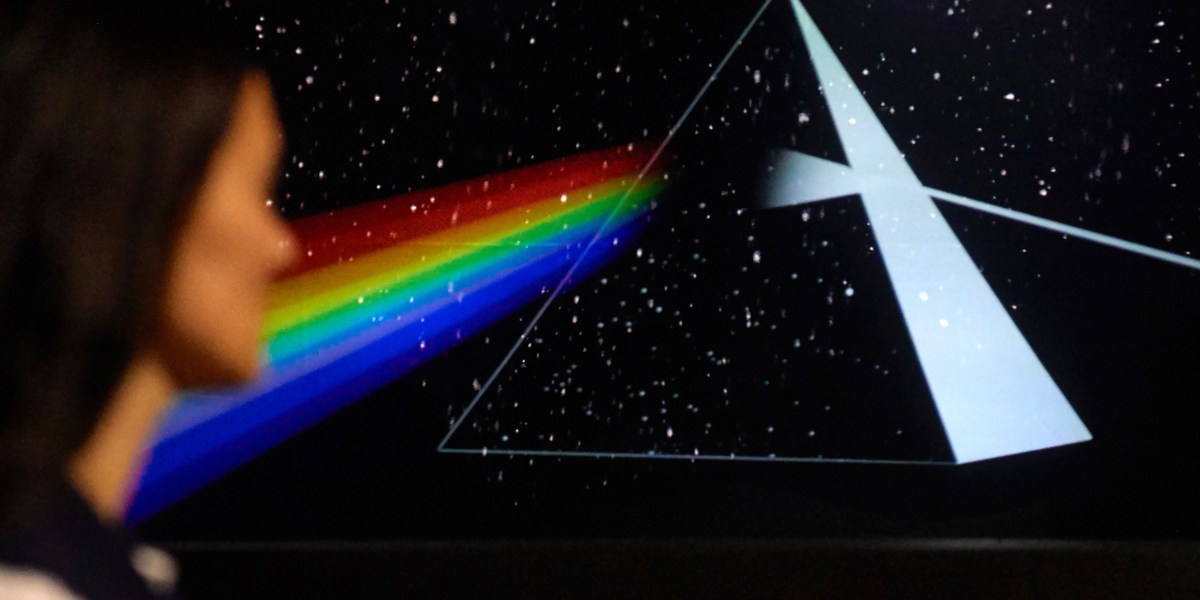Scientists recorded a Pink Floyd song from patients’ brain waves. The tech could eventually allow for communication without words::Listen here.
Google just sucking the thoughts out of your head to serve you more rELeVanT ads🤩🤩
And that’s how we went full circle back to the invasive porn ads of the early 00s
Cool for the disabled to have another means of communication but I personally wouldn’t want a literal mind-reading implant put in.
Hey, that guy is listening to Pink Floyd in his head without paying a licensing fee!!
I can already imagine a Amazon warehouse worker have his brain waves monitored and gets reprimanded everytime he is not focused. They would probably reason it out that it’s for safety reasons.
You’ve already had your 5 minute happy thought break. Go back to being miserable!
Wonder how this will be used by state actors… I guess we can say goodbye to having queer thoughts in secret, or to having involuntary intrusive thoughts with illegal content, suicidal thoughts without forced hospitalization…
we can say goodbye to having queer thoughts in secret
And suddenly half the republicans were against it for … ethical reasons
I never liked the stereotype of “homophobes are just closeted gays” because (1) people can just be hateful without any deeper reason, (2) it somehow blames homophobia out of all things on gay people themselves and (3) it provides plenty of opportunity for people to be homophobic to homophobes in the name of gay rights.
It’s kind of like those oh-so hilarious pictures of Putin and Trump in make-up, kissing. The entire joke is “oh imagine if they were gay, how emasculating and humiliating!” This line of thinking always struck me as homophobic.
Like sure, it happens often, but by far not always, and it’s harmful to imply that’s all there is to homophobia.
deleted by creator
Like sure, it happens often, but by far not always, and it’s harmful to imply that’s all there is to homophobia.
Sure. That’s the other half of the republicans.
And they didn’t even use “Brain Damage”.
and eventually, for anyone who wants to work more efficiently
Oh… How many years until we have Deus Ex Human Revolution in real life?
We already can do it. I can’t imagine a life without it. It makes things easier. Really. I hope humans can achieve it soon.
This is the best summary I could come up with:
It may not always be that way, and that’s a good thing for patients unable to speak due to neurological problems—and eventually, for anyone who wants to work more efficiently, researchers at the University of California Berkeley say.
While receiving surgery they hoped would cure intractable seizures, Pink Floyd’s 1979 single “Another Brick in the Wall, Part 1” played in the operating room.
Using artificial intelligence, Bellier was able to reconstruct the song from that electrical activity in each patient’s brain, according to an article published Tuesday in the journal PLoS Biology.
Bellier’s work will be used to develop even better brain-machine interfaces, which can be used by paralyzed patients like the late Stephen Hawking to express themselves, Knight said—only not so robotically, and eventually, perhaps, merely by thinking.
If the technology is streamlined, it may eventually aid those without disabling conditions—think thought workers—more easily sync with a computer to type text from their minds.
As for the potential of privacy concerns to develop, Bellier said he’d be more worried about what Big Tech knows about us now, thanks to the monitoring and tracking of online activity.
The original article contains 585 words, the summary contains 187 words. Saved 68%. I’m a bot and I’m open source!
Kinda scary if this becomes reality
Captain Pike could do more than beep beep?
Yeah, he just didn’t want to.
So… job interviews are going to become even more humiliating in future?
Next step, Guantanamo Bay.










